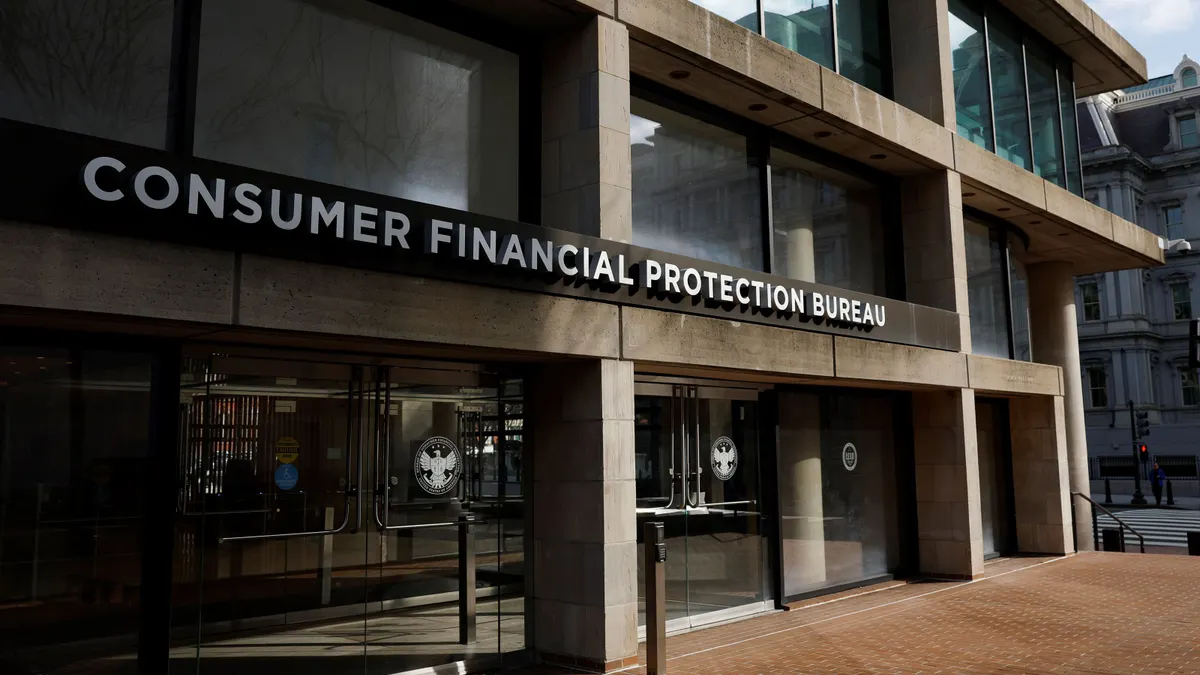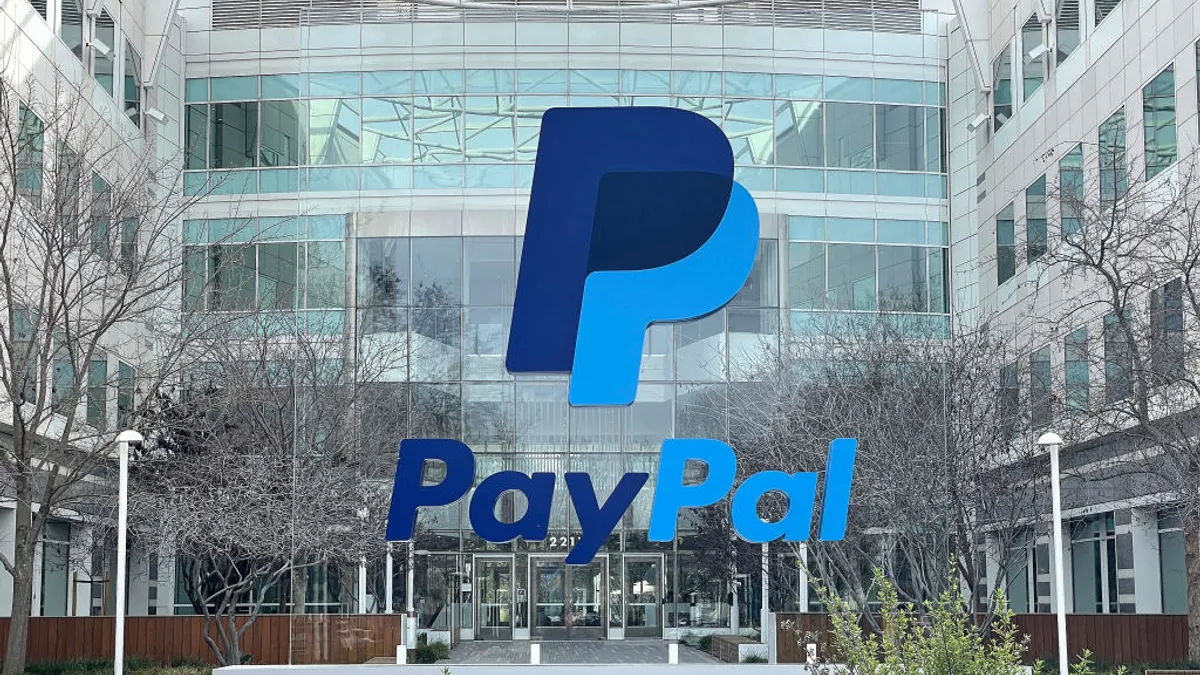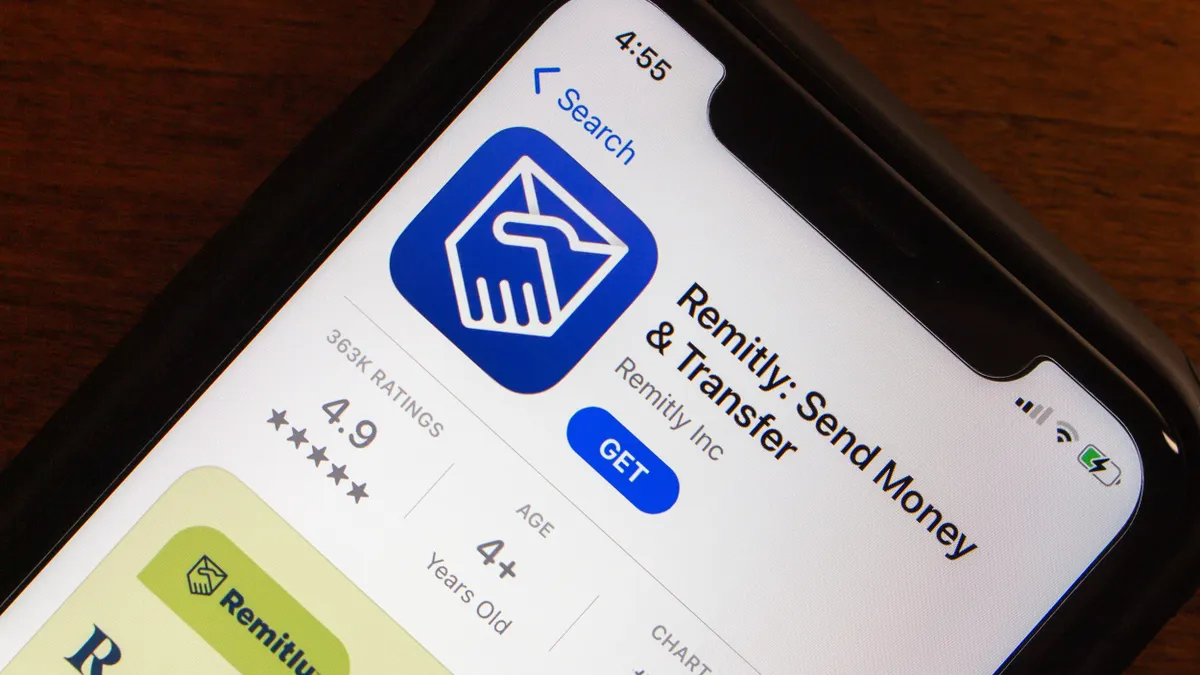The Consumer Financial Protection Bureau said this month it cannot draw funding to continue operations when its current funds lapse, presenting the agency a number of challenges in formulating an open banking rule quickly.
The CFPB told a federal court Nov. 11 that the Justice Department had concluded that the bureau cannot “lawfully draw funds” from the Federal Reserve System – which Congress designated as its funding source – and that the agency has funds to operate until year’s end.
The bureau’s notice did not specify what would happen then, although the CFPB’s acting director, Russ Vought, has assailed the agency in the past and spoke publicly in October about its closure within months.
The bureau has been working on a new open banking rule since July, when it told a federal court it would “substantially” revise the rule and was granted a litigation stay of a lawsuit filed last year by banking trade groups.
The CFPB did not respond to an email Monday seeking comment on the rule. Last week, the bureau notified employees that it would transfer its litigation work to the DOJ and planned additional furloughs at year’s end.
In its motion for a stay, the bureau told U.S. District Judge Danny Reeves it planned “an accelerated rulemaking process” to address what it considered to be deficiencies with the prior rule, enacted under the Biden administration.
But any proposed rule with significant changes – such as allowing financial institutions to charge fees for access to customers’ data – would also require the bureau to assess the impacts to small businesses under the federal Small Business Regulatory Enforcement Fairness Act, attorneys noted.
At that point, a public comment period on the proposed rule – typically 30 to 90 days – would begin. The CFPB would then consider those comments and issue a final rule.
However, the bureau is considering skipping some parts of the rulemaking process to issue a rule by year’s end, potentially including a public comment period on its proposed rule, Bloomberg Law reported Thursday, citing multiple people familiar with the matter.
“Given the polarized view of these rules by the banking and FinTech sectors, if either constituency objects to the substance of the CFPB’s revisions, additional litigation could ensue,” an attorney with law firm McGlinchey Stafford, Adam Maarec, wrote in a September alert about the process.
“An ‘accelerated rulemaking’ still takes a long time,” added Maarec, who advises fintechs and banks. The prior rule took CFPB staff four years from the rulemaking notice to a final rule, he noted, adding “the scope of issues here seems significantly narrower.”
Banking groups that sued the bureau last year leaned heavily on the Administrative Procedure Act for their complaint, arguing that the agency had overstepped its authority to impose “a complicated, costly, and fundamentally insecure mandatory data-sharing framework” that did not allow banks to recover their costs.
Last month, Reeves issued a preliminary injunction preventing the bureau from enforcing its rule, pending the revised rule the CFPB is formulating.
A spokesperson for the Bank Policy Institute said Monday the organization understands that the bureau’s rulemaking process is moving forward but declined to comment further, directing other queries to the agency.
The Financial Data and Technology Association, which counts data aggregators Plaid and Yodlee as members, said it continues to oppose any effort allowing banks to impose fees for customer data.
Both Plaid and Yodlee have announced agreements with the largest U.S. bank, JPMorgan Chase, in the past two months that include new fees for data access.
The Dodd-Frank Act does not permit fees, which are “a competitive toll on consumers simply for exercising their right to access and share their own financial information,” FDATA Executive Director Steve Boms said Monday in an emailed statement. “If banks are given the green light to impose those fees in a new rule, it would fundamentally shift control of financial data away from consumers and toward already powerful incumbents.”
A spokesperson for the Financial Technology Association declined to comment Friday on the CFPB’s future or rule process, as did the American Fintech Council on Monday.
Vought, who also leads the Office of Management and Budget, has been trying to dramatically downsize the CFPB’s workforce and mission since he was appointed acting director in February.
“We don’t have anyone working there except our Republican appointees and a few career [employees] that are doing statutory responsibilities while we close down the agency,” Vought said last month on “The Charlie Kirk Show.” “We want to put it out – and we will be successful probably within the next two, three months.”
Conservative lawmakers and interest groups have targeted the bureau since Congress formed it 15 years ago as part of the Dodd-Frank Act.
“The CFPB is a highly politicized, damaging, and utterly unaccountable federal agency. It is unconstitutional,” the conservative Heritage Foundation wrote in its “Project 2025 Mandate for Leadership” document, in a chapter written by Robert Bowes, a housing department official in the first Trump administration and a former Chase Manhattan banking executive.
“The next conservative President should order the immediate dissolution of the agency — pull down its prior rules, regulations and guidance, return its staff to their prior agencies and its building to the General Services Administration.”






















